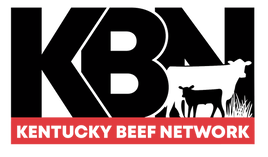County Agricultural Investment Programs (CAIP)
By Tommy Yankey, Anderson Co. Ag Extension Agent
In 2000, the Kentucky General Assembly passed House Bill 611, which created the Kentucky Agricultural Development Board (KADB) and the framework for what is now known as the Kentucky Agricultural Development Fund (KADF). Funding for this program comes from Kentucky’s annual share of the Tobacco Master Settlement Agreement (MSA). Kentucky law provides that 50% of the total funds received through the Master Settlement Agreement be given back to agriculture.
The county portion of the Kentucky Agricultural Development Fund continues at the 35% level established in House Bill 611. These funds are the backbone of Kentucky’s agricultural diversification efforts. The majority of county funds are used to provide model programs (called County Agricultural Investment Program) at the county level. These funds have made a major difference in production agriculture on our farms across the Commonwealth.
Since the beginning of House Bill 611, these funds have been available to counties through a formula based on tobacco dependence. All but two of Kentucky’s 120 counties receive allotments each year that range from a few hundred dollars to several thousand. Areas covered related to grazing could include interior and perimeter fencing, water development, forage establishment and management, and cattle handling and hay storage facilities. Each county has a 9-member board that determines areas eligible for cost share. Thus, funding opportunities are different in each county. To learn more about cost share opportunities available in your county, please check with your local University of Kentucky Cooperative Extension Office. Each office will be happy to assist you in answering questions you may have regarding eligibility and guidelines. Participation in all CAIP cost share programs require attendance at a minimum of one educational program within the last 6 months related to farm management, production, best management practices or marketing.
Learn more about programs through the Governor’s Office of Agricultural Policy.
Categories:
General
Cost Share Programs


